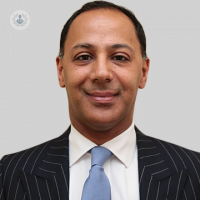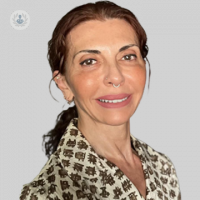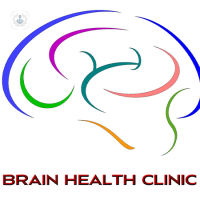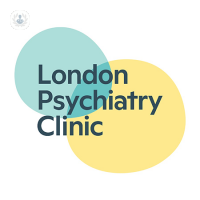What is psychosis?
Psychosis is a mental health problem which impairs emotions and causes people to interpret or perceive things differently from what is actually happening. Psychosis is not a mental illness but rather a symptom, often of mental health conditions such as schizophrenia or bipolar disorder.

What causes psychosis?
While it is not known exactly what triggers psychosis, it can be directly connected to a specific mental health condition, including depression, bipolar disorder, or schizophrenia. Psychosis can also be triggered by personal experiences, including trauma or stress. On some occasions, psychosis can also occur as a result of alcohol or drug misuse.
Certain physical conditions can also cause psychosis, such as a brain tumour, a traumatic brain injury, or a stroke. Finally, psychosis can also occur as a side effect of specific prescription medication.
What are the symptoms of psychosis?
Psychosis symptoms can vary from individual to individual, with each person who has developed psychosis experiencing their own particular set of symptoms. However, there are particular psychosis symptoms which can be associated with psychosis:
- Hallucinations;
- Delusions;
- Disturbed or confused thoughts;
- A lack of self-awareness, or insight.
Hallucinations refer to the person experiencing psychosis by sensing things which aren’t there in reality, such as hearing voices, or seeing shapes and colours around them. Delusions are strong beliefs which are not then held by others. Someone with psychosis may believe that people are conspiring against them, for example, or that they are in a position of power (e.g the Prime Minister, the president of a country).
How is psychosis treated?
Psychosis may be treated in various ways, including through therapy, medication, and intervention teams.
Early intervention teams are groups of healthcare professionals who are specifically set up to help those who have experienced their first episode of psychosis. The early intervention team makes an assessment of the individual and their needs, helps to assess if medication will be necessary and which to take, along with therapy if necessary.
Medication should only be prescribed by a healthcare professional after a thorough assessment. Generally medication comes in the form of antipsychotics, which can have side effects such as:
- drowsiness;
- loss of libido;
- restlessness;
- weight gain, and;
- shakes and tremors, among others.
If side effects are experienced, it is best to speak to a healthcare professional.
Therapy for psychosis may include cognitive behavioural therapy (CBT), family therapy and intervention (where family members meet together over a period of time to help discuss the condition and support), and supportive psychotherapy.
Getting help for psychosis
As psychosis can impair people’s emotions and perceptions, it is not always possible for the person experiencing it to recognise their symptoms. If you are concerned that someone in your family or someone you know has developed psychosis, and you are concerned that their symptoms are putting them or others at risk, you can call their GP, or call an ambulance. They may agree to go along to the local A&E department with you if they are at risk.
Mental health helplines may also be a place of support for either you or the individual experiencing psychosis.
Which specialist treats psychosis?
A wide team is usually involved in the management and treatment of psychosis, including GPs, psychiatrists, psychologists, occupational therapists, and other healthcare professionals.
11-19-2013 04-20-2023Psychosis
Dr Maria Martinez Herves - Psychiatry
Created on: 11-19-2013
Updated on: 04-20-2023
Edited by: Karolyn Judge
What is psychosis?
Psychosis is a mental health problem which impairs emotions and causes people to interpret or perceive things differently from what is actually happening. Psychosis is not a mental illness but rather a symptom, often of mental health conditions such as schizophrenia or bipolar disorder.

What causes psychosis?
While it is not known exactly what triggers psychosis, it can be directly connected to a specific mental health condition, including depression, bipolar disorder, or schizophrenia. Psychosis can also be triggered by personal experiences, including trauma or stress. On some occasions, psychosis can also occur as a result of alcohol or drug misuse.
Certain physical conditions can also cause psychosis, such as a brain tumour, a traumatic brain injury, or a stroke. Finally, psychosis can also occur as a side effect of specific prescription medication.
What are the symptoms of psychosis?
Psychosis symptoms can vary from individual to individual, with each person who has developed psychosis experiencing their own particular set of symptoms. However, there are particular psychosis symptoms which can be associated with psychosis:
- Hallucinations;
- Delusions;
- Disturbed or confused thoughts;
- A lack of self-awareness, or insight.
Hallucinations refer to the person experiencing psychosis by sensing things which aren’t there in reality, such as hearing voices, or seeing shapes and colours around them. Delusions are strong beliefs which are not then held by others. Someone with psychosis may believe that people are conspiring against them, for example, or that they are in a position of power (e.g the Prime Minister, the president of a country).
How is psychosis treated?
Psychosis may be treated in various ways, including through therapy, medication, and intervention teams.
Early intervention teams are groups of healthcare professionals who are specifically set up to help those who have experienced their first episode of psychosis. The early intervention team makes an assessment of the individual and their needs, helps to assess if medication will be necessary and which to take, along with therapy if necessary.
Medication should only be prescribed by a healthcare professional after a thorough assessment. Generally medication comes in the form of antipsychotics, which can have side effects such as:
- drowsiness;
- loss of libido;
- restlessness;
- weight gain, and;
- shakes and tremors, among others.
If side effects are experienced, it is best to speak to a healthcare professional.
Therapy for psychosis may include cognitive behavioural therapy (CBT), family therapy and intervention (where family members meet together over a period of time to help discuss the condition and support), and supportive psychotherapy.
Getting help for psychosis
As psychosis can impair people’s emotions and perceptions, it is not always possible for the person experiencing it to recognise their symptoms. If you are concerned that someone in your family or someone you know has developed psychosis, and you are concerned that their symptoms are putting them or others at risk, you can call their GP, or call an ambulance. They may agree to go along to the local A&E department with you if they are at risk.
Mental health helplines may also be a place of support for either you or the individual experiencing psychosis.
Which specialist treats psychosis?
A wide team is usually involved in the management and treatment of psychosis, including GPs, psychiatrists, psychologists, occupational therapists, and other healthcare professionals.


Psychosis: What is it and when should it be treated?
By Dr Maria Martinez Herves
2024-11-20
Revered consultant psychiatrist Dr Maria Martinez Herves gives an expert guide to psychosis, including the importance of effective treatment, in this informative article for patients. See more


An expert guide to psychosis
By Dr Gopalkrishna Hegde
2024-11-19
Dr Gopalkrishna Hegde, renowned consultant psychiatrist, provides a comprehensive insight into psychosis, the medical term term used to describe various symptoms that affect a person’s perception and interpretation of reality. The Northampton-based specialist discusses symptoms, causes and treatment, among other important points. See more


What to do if a loved one shows signs of psychosis
By Dr Lars Davidsson
2024-11-18
It can be frightening to witness your loved one develop psychotic symptoms, especially when they are unaware of what's happening to them. We've asked expert psychiatrist Dr Lars Davidsson to explain what to do if you suspect that your family member is experiencing psychosis. See more


What are the main symptoms of psychosis?
By Dr Lars Davidsson
2024-11-14
Schizophrenia and drug-induced psychosis are two of the commonest types of psychosis. We've asked expert psychiatrist Dr Lars Davidsson to describe the symptoms that may occur when someone is experiencing either type of the condition. Read more on how psychosis can be treated. See more
Experts in Psychosis
-
-
Dr Luis Alameda
PsychiatryExpert in:
- Bipolar disorder
- Personality disorders
- Depression
- Obsessive compulsive disorder (OCD)
- Psychosis
- Schizophrenia
-
Dr Daniela Rossi
PsychologyExpert in:
- Anxiety
- Psychosis
- Personality disorders
- Post-traumatic stress disorder (PTSD)
- Psychotherapy
- Chronic pain
-
Dr Edwin Ugoh
PsychiatryExpert in:
- Depression
- Bipolar disorder
- Psychosis
- ADHD
- Drug addiction
- Anxiety
-
Dr Maria Martinez Herves
PsychiatryExpert in:
- ADHD
- Autism
- Paediatric psychiatry
- Depression
- Anxiety
- Psychosis
- See all

Brain Health Clinic
Brain Health Clinic
85 Wimpole St, London
No existe teléfono en el centro.
By using the telephone number provided by TOP DOCTORS, you automatically agree to let us use your phone number for statistical and commercial purposes. For further information, read our Privacy Policy
Top Doctors

London Psychiatry Clinic
London Psychiatry Clinic
55 Harley Street London W1G 8QR
No existe teléfono en el centro.
By using the telephone number provided by TOP DOCTORS, you automatically agree to let us use your phone number for statistical and commercial purposes. For further information, read our Privacy Policy
Top Doctors

House of Health
House of Health
90 Pope St, Birmingham, B1 3AG
No existe teléfono en el centro.
By using the telephone number provided by TOP DOCTORS, you automatically agree to let us use your phone number for statistical and commercial purposes. For further information, read our Privacy Policy
Top Doctors
-
Brain Health Clinic
85 Wimpole St, London, Central LondonExpert in:
- Autism
- Dementia
- Neuropsychiatry
- Psychosis
- ADHD
- Bipolar disorder
-
London Psychiatry Clinic
55 Harley Street London W1G 8QR, W1G Marylebone LondonExpert in:
- Anxiety
- Autism
- Depression
- ADHD
- Obsessive compulsive disorder (OCD)
- Trauma
-
House of Health
90 Pope St, Birmingham, B1 3AG, BirminghamExpert in:
- Anxiety
- Plastic surgery, reconstructive and aesthetics
- Obstetrics and Gynaecology
- Women’s health
- Menopause
- Sexual health
- Most viewed diseases, medical tests, and treatments
- School refusal
- Migraine
- Maternal mental health
- Pelvic pain syndrome
- Seizures
- Parkinson's disease
- Expert witness
- Anxiety
- Long Covid
- Medical cannabis prescription







